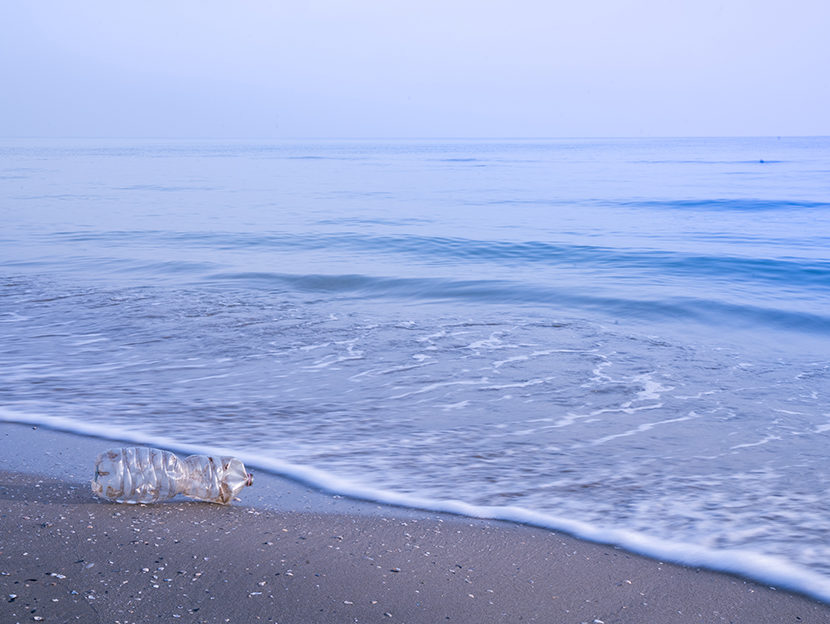
Plastic debris consisting of disposable food and drinks packaging, plastic bags, synthetic clothes, bath products, cotton buds, and so on is one of the great ecological problems both at sea and on land.
Every year over eight million tonnes of plastic ends up in the oceans. And if we do not put a brake on this trend, by 2050 the mass of plastic in the oceans will exceed by weight that of all the fish in the sea.
The ocean has now become a dumping ground for an unimaginable quantity of macroscopic plastics and of less visible, but far more dangerous, microplastics.
What exactly are microplastics?
As is well known, plastic is not biodegradable but when exposed to water erosion and sunlight over time it decomposes into fragments of varying sizes that are around five millimetres. Although the most significant objects responsible for the suffocation and trapping of animals are the ones that generate the most controversy, microplastics are in fact the most harmful and ‘treacherous’ form of pollution:
- They can be mistaken for food and ingested by marine animals, where they then accumulate in the tissues.
- Phthalates and heavy metals are the most commonly-found pollutants in this fragmented form, which then enters the food chain and ends up on our plates. And the consequences of long-term ingestion of these substances are not yet clear.
Cleansing the oceans of this type of particulate pollution is almost impossible. The only option is, therefore, to prevent macroscopic pollution by drastically cutting packaging production and replacing materials that can release microplastics.
This phenomenon often seems very far from our daily lives, but in reality, it does not happen only in remote areas of the earth. One of the seas most affected by this form of pollution is actually the Mediterranean due to its semi-closed shape and high density of housing along its coastline.
To appreciate this phenomenon, all one needs to do is take a walk on any beach along the Italian coastline and take a guess at how much plastic one could gather in just a few minutes’ walk.
The issues arising from this phenomenon effect not only animals and the marine ecosystem, but also us.
It is now recognised that urgent action is essential. Reducing the dumping of plastics in the ocean is of fundamental importance for the health of the planet. The traditional model of production, use and disposal of conventional plastics is clearly no longer sustainable.
It is also clear that in a society now based on the concept of ‘disposability’, this is not easily done.
To make this objective achievable, joint cooperation at several levels is essential:
- It is important that every citizen does their bit by sorting and recycling their domestic waste properly.
- It is essential for every local authority to put every tool possible at the disposal of local residents to implement the separate collection and disposal of plastic waste in the most effective way possible.
- Lastly, but most important of all: every business must commit to reducing non-biodegradable plastic packaging by replacing it with more sustainable, environmentally friendly materials.
Euro Company’s values very much embrace respect for the environment. In the last two years, it has eliminated 24 tons of packaging waste, and its current latest ambitious goal is to package all products in 100% recyclable or compostable packaging by 2020.
If we love and respect our planet, the species that inhabit it, the food we eat every day, and ourselves, we must act immediately and in an informed manner. That is the responsibility of all of us.
Sources and insights:
Programma delle Nazioni Unite per l’ambiente – UNEP: https://www.unenvironment.org/
http://www.nationalgeographic.it/ambiente/2017/12/14/news/sopra_un_mondo_di_plastica-3792305/
https://www.wwf.ch/it/i-nostri-obiettivi/inquinamento-dei-mari